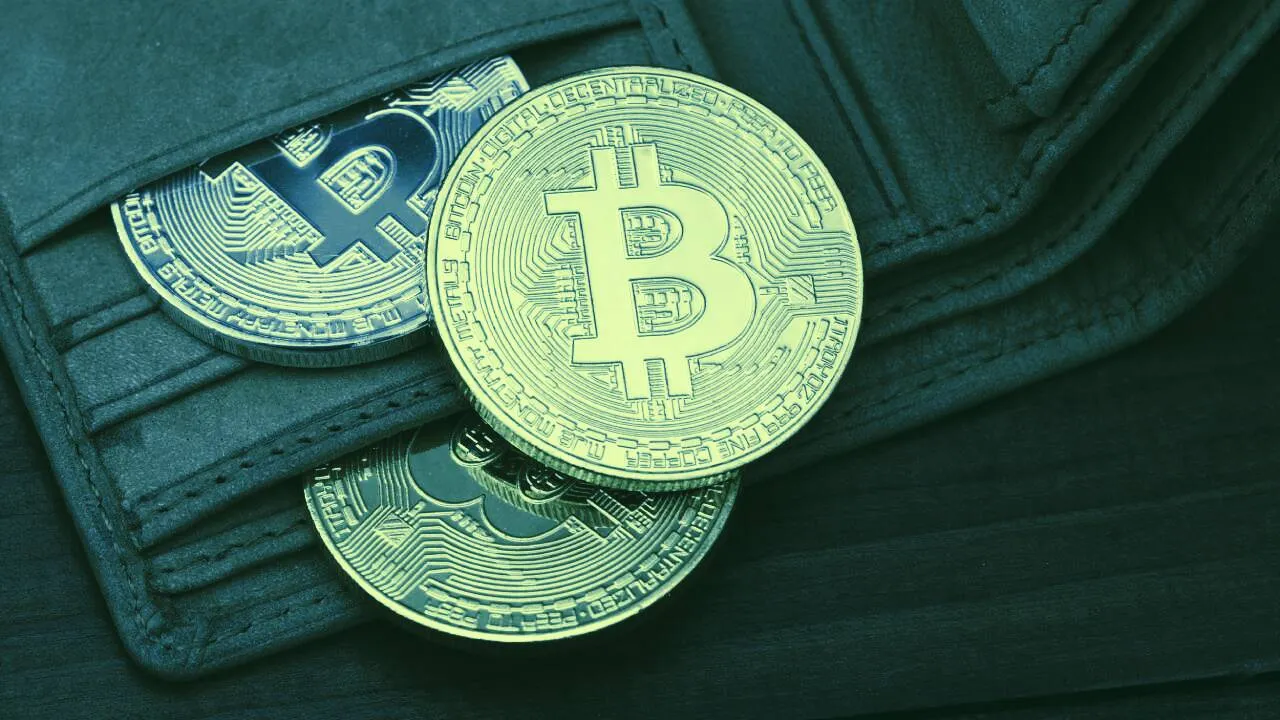In brief
- Although there is a huge number of Bitcoin wallet providers, many new users still struggle with creating a wallet.
- Mobile, hardware, and cryptocurrency exchange wallets are three of the most popular options, but beware of fakes and scams.
- Many cryptocurrency wallets allow users to generate multiple Bitcoin addresses, but this feature is rarely available on cryptocurrency exchanges.
We do the research, you get the alpha!
When taking your first steps into the Bitcoin and cryptocurrency space, your first challenge is finding a safe, secure way to store your crypto.
Fortunately, there's a huge variety of Bitcoin wallet providers available. These allow you to create a Bitcoin address (also known as a public key) that can be used for sending and receiving Bitcoin (BTC). Some of these wallets also provide access to the private keys (essentially the key that controls the public address), allowing you to quickly move your funds into another wallet if needed.
It's important that you don't get your public and private keys mixed up—you should never give out your private key, as anyone who has access to this can control your funds.
What is a Bitcoin address?
In simple terms, a Bitcoin address is a public identifier for your Bitcoin wallet, acting as a virtual location where the cryptocurrency can be sent.
When you create a Bitcoin wallet, you receive a public key and a private key. The private key proves you’re the owner of the wallet in question; the public key is used to receive funds. The public key and private key are linked through asymmetric encryption; the private key can be used to derive the public key, but the public key can’t be used to extrapolate the private key. For this reason, you should never share your private key.
A Bitcoin address isn’t quite the same thing as your public key; instead it’s a temporary, hashed version of your public key. The address itself consists of between 26 and 35 alphanumeric characters; for ease of use they are often converted into a QR code format for sharing. For each new transaction, the recipient generates a new single-use address which they provide to the sender.
Examples of Bitcoin addresses
As mentioned above, Bitcoin addresses are between 26 and 35 alphanumeric characters long. There are three different types of Bitcoin address: Pay-to-PubKey-Hash (P2PKH, also known as Legacy address), Pay to script hash (P2SH) and Bech32. Not all wallets support all three address formats.
P2PKH addresses
P2PKH addresses are the original Bitcoin address format, and are also known as Legacy addresses. They start with the number 1, and are case-sensitive. All wallets should support legacy addresses; you should be able to receive Bitcoin sent from a Segwit address to a legacy address. Transaction fees are generally higher for P2PKH addresses.
- Example: 1FWu4Z9NoBWnguurBCdXpmM2xuiog6kbdy
P2SH addresses
Nested SegWit, or Pay to script hash (P2SH) addresses use a similar structure to P2PKH addresses, but start with a 3 instead of a 1. The format was introduced to support the SegWit, or segregated witness, update to the Bitcoin protocol, which split off signature data from Bitcoin transactions—reducing the size of transaction data that needed to be stored in Bitcoin blocks.
Practically speaking, that means that P2SH addresses have reduced transaction fees. They act as a “halfway house” between Legacy and Native SegWit addresses, supporting both types of transactions. They also support greater functionality than legacy addresses, such as multisig addresses (which require multiple digital signatures to authorise a transaction).
- Example: 3C3nZhpVjjDGo7vGzBCTJkKfYzCGWGLWsq
Bech32 addresses
Native SegWit, or Bech32 addresses, start with “bc1” and are not case sensitive. Native SegWit addresses fully support SegWit transactions, resulting in lower transaction fees—but they are not supported by all exchanges and wallet providers.
- Example: bc1qwdanan7d5dq99l6v7z65a4x50cqf2rep6wj9z6
Method 1: Download a mobile wallet
Mobile wallets are fast gaining popularity as a simple and efficient way to store cryptocurrencies. Part of the reason they're so popular is down to their accessibility and ease of use. Most cryptocurrency mobile wallets are capable of storing a wide range of cryptocurrencies in a single place and can be used on both Android and iOS devices. Popular Bitcoin mobile wallets include Electrum, Jaxx Liberty and BRD.
Your first port of call for a mobile cryptocurrency wallet will likely be the Google Play Store or Apple App Store, depending on your smartphone operating system. Search for terms such as "Bitcoin wallet" or "cryptocurrency wallet" to find a mobile wallet that meets your requirements.
It's important to pay close attention to the reviews; a number of fake wallet apps designed to steal cryptocurrency private keys and seed phrases have been known to slip past checks and end up on these app stores. We recommend sticking with wallets that have a large number of users and excellent reviews.
You can also check the Decrypt reviews section, which is continually updated with our latest reviews of trustworthy mobile wallets.
Once you've chosen a suitable mobile wallet, you'll be able to create your Bitcoin wallet in the app. This usually involves creating a unique security PIN to control access to the wallet.
You'll also likely need to write down a 12 to 24-word recovery phrase; this is extremely important as it's used to restore your wallet if you lose access to your device. People have been known to go to extreme lengths to keep their seed phrases secure, from etching them on metal plates to splitting them up and storing them in separate safety deposit boxes (the approach taken by Bitcoin billionaires the Winklevoss twins).
Method 2: Use a hardware wallet
Arguably the most secure way to create a Bitcoin wallet is by using one of the many cryptocurrency hardware wallets available. These are essentially physical vaults that allow users to store cryptocurrencies in an offline environment and are secured by a number of hardware and software-based security layers.
These security layers can include a bank-grade secure element as with the Ledger Nano X, physical biometric security with the D'CENT Biometric Wallet, or the unique 'duress PIN' feature of the Coldcard Mk3. Most cryptocurrency hardware wallets are secure against a wide range of attacks, but they can be costly, making them best suited for those with an extensive cryptocurrency portfolio.
Like most modern cryptocurrency wallets, hardware wallets generally allow users to generate addresses for a wide variety of cryptocurrencies, but Bitcoin, Ethereum (ETH), and Tether (USDT) are supported by most offerings.
To create your Bitcoin wallet on a hardware wallet, you'll first need to set up the device. During this process, you may be asked to select which cryptocurrencies you want to manage on the device. Alternatively, some hardware wallets, like those produced by Ledger, allow you to quickly add and remove support for different cryptocurrencies using a companion app.
Depending on the device you use, you'll then be able to generate your Bitcoin wallet either on-device or using the associated app. Again, this will generally involve recording a recovery phrase and setting a PIN to limit access to the device.
Method 3: Register at a cryptocurrency exchange
Cryptocurrency exchanges are an extremely popular way to store Bitcoin, since they also typically offer a free cryptocurrency wallet. A large proportion of the most popular cryptocurrency exchanges allow users to store and manage a wide variety of cryptocurrencies after simply opening an account, but others require users to complete identity verification and an anti-money laundering (AML) questionnaire before this feature is enabled.
Once you've enabled the wallet feature on your cryptocurrency exchange of choice, you'll be able to find or generate a deposit address in your account, usually in the deposit or wallet section of the website. Most cryptocurrency exchanges do not allow users to generate multiple addresses for a single cryptocurrency, forcing them to reuse the same address for each transaction.
Although most cryptocurrency exchanges provide users with a cryptocurrency wallet, it's important to note that not all exchanges are trustworthy. There are number of fake exchanges that exist for no other purpose than to steal the deposits of the unfortunate individuals who register there.
Because of this, it's important to do your own research before choosing an exchange, being wary not to use platforms without a good reputation. Some of the most established and trustworthy names in the space include Coinbase, Binance, Kraken, and Gemini, but there are many other options available.






